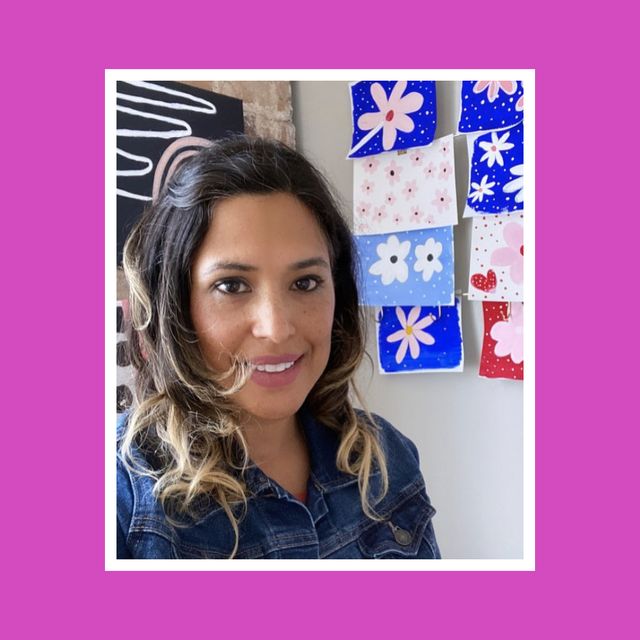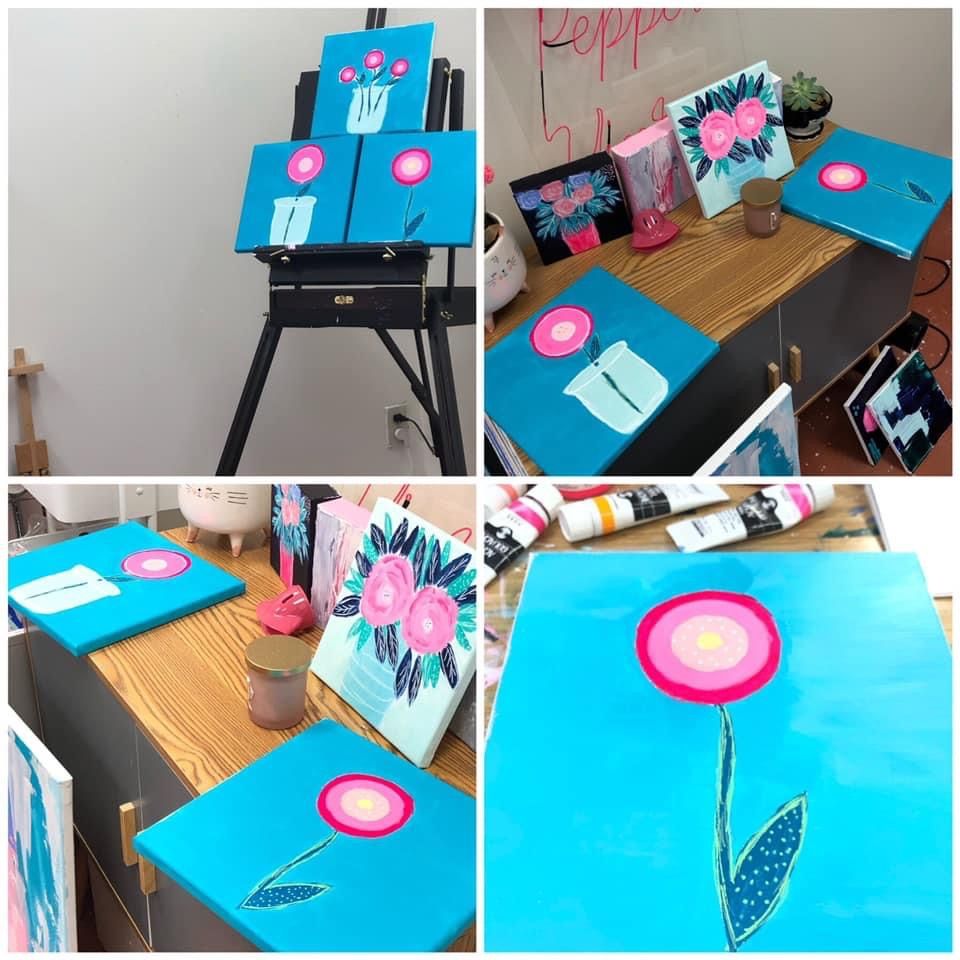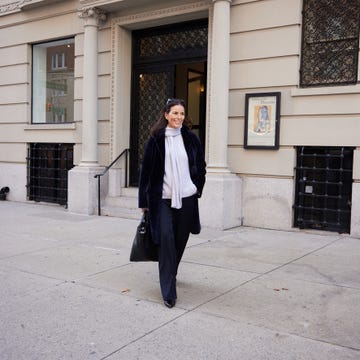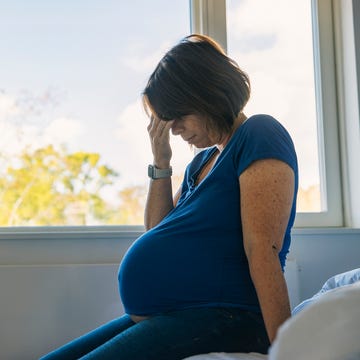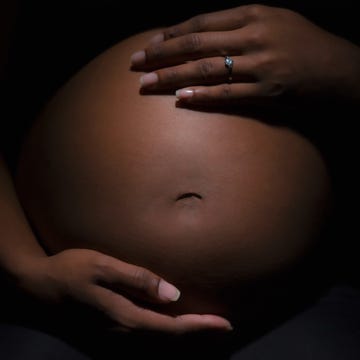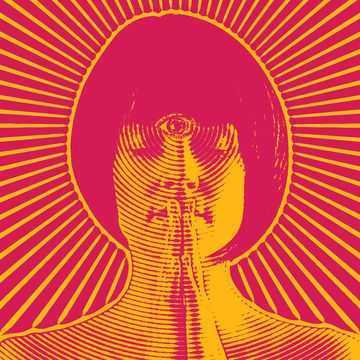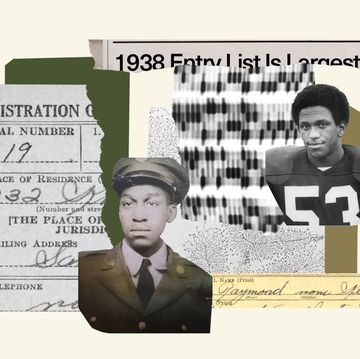Christine Saenz is a 48-year-old human resources manager in Houston, TX.
I always knew I was different, but I had no idea why. By the time I was eight, I truly felt like something was wrong with me. I was always a moody kid, needed a lot of alone time, and was picked on by my cousins for being grouchy all the time.
When I was 10, my insomnia started, and that triggered my first bipolar episodes, although at that point I didn’t know what there was a name for them. No one talked about feelings or mental health in my house, and I didn’t want to tell my parents because I worried they’d think I was crazy (heck, I did).
Coping strategies hid my pain
I learned I had to hide my depressive episodes—and I did it well. I developed a defense mechanism by being a bubbly, approachable person. I pretended to be fun and laughed a lot in public while stowing away my dark feelings and the need to cry. I realized this was part of the reason I felt so worn out all the time, because after keeping up the facade of being someone else, I had to spend a lot of time alone to recharge. Yet when I was finally alone, dark and sad feelings quickly overcame me. Nobody knew what I was struggling with—not my teachers, boyfriend, or friends. It was incredibly draining to keep up the act, so I didn’t want to go to school and often skipped when I didn't have it in me to pretend I was OK.
This defense served me well over the years, in that it helped me develop relationships and friendships, and allowed me to keep a professional job. But it also really hurt me. Because no one in my life knew the truth, that also meant that no one was able to encourage me to get the help I really needed.
Starting a family
I got married in my early twenties, and kept my episodes hidden from my husband, too. I still didn’t even know what bipolar was, and I thought that if I told people how I actually felt—so depressed that I sometimes wanted to disappear—they’d think I was an awful person, because I had so much to be grateful for. That was especially true after I had my first two children. I cried constantly and couldn’t bond with my kids, and all the other moms I knew would say stuff like “this is the most beautiful and meaningful experience of my life.” Meanwhile, I was thinking things like, “I’m miserable and regret becoming a mom.” At the time I thought it was strictly postpartum depression (PPD), but now I think my undiagnosed bipolar was also a factor. In the end, my constant depressive periods took a toll on my marriage, and my husband and I got a divorce.
In my early thirties, I married again and had two more children. Once again I suffered from terrible PPD. I had panic attacks in bed, and could never sleep because I was so busy worrying that I’d somehow harm my youngest child. I finally went to see a psychiatrist, who said I needed to be hospitalized for depression. My husband was completely opposed to the idea—he refused to believe I was sick and said I was just being selfish. Three months later, he left me.
A mental health crisis
I began seeing a psychiatrist regularly. He diagnosed me with depression and prescribed an antidepressant, which made me extremely manic: I went to the office at 4 am because I couldn’t sleep anyway, was hypersexual, and took on extra projects at work. When I told the doctor about my insomnia, he prescribed a sedative to take two or three times a day max. I found myself taking one every hour because I was so agitated. At my lowest, I was popping up to 20 pills in a day. Finally, I called my doctor and told him I felt like I wanted to jump out of my skin and run away from myself. He told me to go immediately to a psychiatric hospital. I’m so glad I actually listened.
Life-changing diagnosis
At the psychiatric hospital, I was sedated and evaluated. I was diagnosed with bipolar disorder, a mental health condition that causes extreme mood swings with emotional highs (mania or hypomania) and lows (depression). Rather than feeling shame from the stigma of being mentally ill, at that moment I felt such sweet relief—finally, there’s a name for what I’ve felt my whole life!
I was in the hospital for 10 days, and the medication I was given made me feel childlike, innocent, and unashamed. Being on the proper medication in the hospital allowed me to feel vulnerable enough to call and reach out to people. I told everyone about my diagnosis.
My coworkers were shocked. They’d known me as a polished, hard-working people pleaser. From the outside, I looked like I had everything together, but what they couldn’t see was that on the inside, I was completely falling apart.
Both friends and family came to visit me in the hospital to make sure I was OK. I felt this incredible freedom knowing that I didn’t need to keep my secret anymore. Everyone knew I wasn’t perfect and that I had bipolar—and they still loved me. Even my second ex-husband told me he regretted how he handled things, and we’re friends now.
Finding support and community
My children went to live full-time with their dads so I could focus on my recovery. I took eight weeks off my job as a human resources manager.
With my doctor’s guidance, I tried several prescriptions, gave up drinking, made rigid routines around my sleep, and started cognitive-behavioral therapy to maintain my stability. My therapist suggested I try painting as a way to calm myself when I’m having an episode of anxiety and depression, and it really worked for me. I absolutely fell in love with the way painting allowed the inner child in me to run wild. I paint every day now. I still have my day job, but art has been a lifeline for me—one of the best tools in my tool belt of healthy coping mechanisms.
I also tried to join some support groups for people with bipolar, but I didn’t find a lot of other people who were in the same situation of being bipolar but still high-functioning enough to keep a professional job. So I decided to start Facebook and Instagram pages to honestly and openly share my journey, in hopes that I could find others like me, create a community, and trade resources. And it worked—I ended up getting DMs from people in all walks of life: a famous radio DJ, investment fund managers, lawyers, and so many others. I don’t go a day without getting contacted by someone telling me that they—or someone they love—is struggling.
Now I’m 48, and I’ve been running my Facebook page for nine years and my Instagram for four. My online community is 40,000 people strong, filled with like-minded, bipolar individuals, or people who are affected by someone who has a bipolar diagnosis. We are sometimes each other’s lifeline in the form of a DM. We ask each other simple questions like Did you eat? Have you showered? Did you do one good thing for yourself today?
Moving forward with my illness
Today, I’m able to go weeks (and sometimes even several years) between manic episodes. I’m also now able to spot signs of the beginning of an episode. When that happens, I immediately reach out to my therapist to help settle me down and keep me from spiraling. Certain situations can trigger episodes as well. If I try to go out socially more than once a week, I can feel it happening. My body and mind tell me when I’m doing too much and not resting enough to recharge—the key for me is just listening to it.
I took two years off from dating, just to work on me, and I finally felt ready to jump in again earlier this year. On my first date with my now-boyfriend, I laid it all on the table and told him about my diagnosis and history. I expected him to run for the hills! But he said he saw me as a person who was honest, self-aware, and who liked who I was now. He and I have been together for eight months and are very much in love, and I feel better equipped to be in a relationship than I ever have before.
Looking back, it may have seemed intense that I told basically everyone I knew I had bipolar the minute I was diagnosed. But it was truly the best thing that I could’ve done. My honesty and vulnerability at the beginning of my treatment journey was immediately matched by the love and support of those around me. It’s that support that gave me the strength to tell the world, and to keep sharing my story. Hopefully that helps other people going through mental health issues to feel safe opening up about it, sans stigma or shame.
